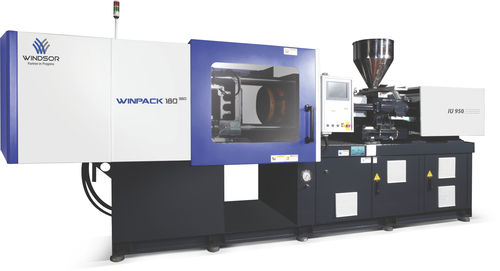What is RVM in Real Estate?

Introduction to RVM in Real Estate
In the dynamic world of real estate, the importance of accurate property valuations cannot be overstated. Whether you’re a homeowner, an investor, or a real estate professional, understanding the true market value of a property is crucial. One of the most reliable tools for determining this value is the Realtor Valuation Model (RVM). This article delves deep into what RVM is, how it works, and why it is a game-changer in the real estate industry.
Understanding Realtor Valuation Model (RVM)
The Realtor Valuation Model (RVM) is a sophisticated property valuation tool developed by the National Association of Realtors (NAR). Unlike traditional valuation methods, RVM integrates data from a variety of sources, including Multiple Listing Service (MLS) data, public records, and proprietary algorithms. This integration ensures that RVM provides a highly accurate and reliable estimate of a property’s market value.
How Does RVM Work?
Data Integration and Analysis
RVM stands out due to its ability to merge data from multiple sources. It leverages MLS data, which includes comprehensive details about properties listed for sale, recently sold properties, and those that are off the market. Additionally, it incorporates public records, which provide historical data on property ownership, tax assessments, and previous sales.
Proprietary Algorithms
The heart of RVM’s accuracy lies in its proprietary algorithms. These algorithms analyze the integrated data to identify patterns and trends in the real estate market. By considering factors such as property location, size, condition, and comparable sales, RVM can generate a precise valuation that reflects current market conditions.
Advantages of Using RVM
Accuracy and Reliability
One of the main advantages of RVM is its exceptional accuracy. Because it uses real-time data from MLS and other sources, RVM’s valuations are more reliable than those obtained through traditional methods. This accuracy is particularly beneficial for real estate professionals who need to provide clients with dependable property valuations.
Comprehensive Insights
RVM does not just offer a single valuation figure. It provides a range of values, which gives a more nuanced understanding of a property’s market position. This range accounts for factors such as property improvements, neighborhood trends, and economic conditions, offering a comprehensive insight into the property’s value.
Time Efficiency
For real estate agents and brokers, time is of the essence. RVM streamlines the valuation process, delivering fast and accurate results. This efficiency allows professionals to focus on other critical aspects of their work, such as client interactions and property marketing.
RVM vs. Traditional Valuation Methods
Comparison with Comparative Market Analysis (CMA)
Comparative Market Analysis (CMA) is a widely used traditional method where real estate agents estimate a property’s value based on recent sales of similar properties in the area. While CMA is useful, it relies heavily on the agent’s expertise and may not always reflect the most current market conditions. RVM, on the other hand, uses real-time data and advanced algorithms, making it more accurate and less subjective.
Appraisals vs. RVM
Appraisals involve a professional appraiser evaluating a property to determine its value. Although appraisals are thorough, they can be time-consuming and costly. RVM offers a faster, cost-effective alternative that is just as accurate, thanks to its data-driven approach.
Applications of RVM in Real Estate
For Homeowners
Homeowners can use RVM to get an accurate estimate of their property’s value before selling. This helps in setting a competitive asking price, attracting potential buyers, and ensuring a timely sale.
For Real Estate Investors
Investors rely on precise property valuations to make informed decisions. RVM provides the detailed insights investors need to assess the potential return on investment, enabling them to make smarter purchasing decisions.
For Real Estate Agents and Brokers
Real estate agents and brokers benefit from RVM’s accuracy and efficiency. It helps them provide clients with reliable valuations, enhancing their credibility and facilitating smoother transactions.
Challenges and Limitations of RVM
Data Dependency
While RVM is highly accurate, its reliability is contingent on the quality and completeness of the data it uses. In regions where MLS data is sparse or public records are incomplete, RVM’s effectiveness may be limited.
Market Volatility
Real estate markets can be volatile, with values fluctuating due to economic conditions, interest rates, and other factors. Although RVM incorporates real-time data, rapid market changes can still impact its accuracy.
Future of RVM in Real Estate
Technological Advancements
As technology advances, RVM is expected to become even more accurate and efficient. Enhanced data analytics, machine learning, and artificial intelligence will further refine RVM’s algorithms, providing even more precise property valuations.
Integration with Other Tools
RVM is likely to integrate with other real estate tools and platforms, offering a more seamless experience for users. This integration will enhance the overall efficiency of real estate transactions and improve the user experience.
Expanding Data Sources
To overcome current limitations, efforts are being made to expand the data sources used by RVM. This expansion will include more comprehensive public records, enhanced MLS data, and potentially, data from smart home devices and other emerging technologies.
Conclusion
The Realtor Valuation Model (RVM) represents a significant advancement in the field of real estate property valuation. Its ability to integrate diverse data sources and apply sophisticated algorithms results in highly accurate and reliable property valuations. Whether you are a homeowner, investor, or real estate professional, understanding and utilizing RVM can provide a substantial edge in the competitive real estate market.





